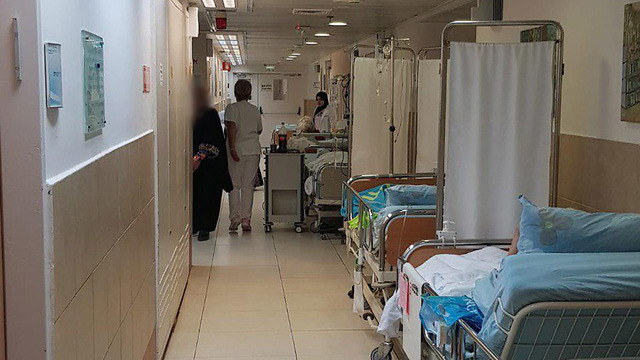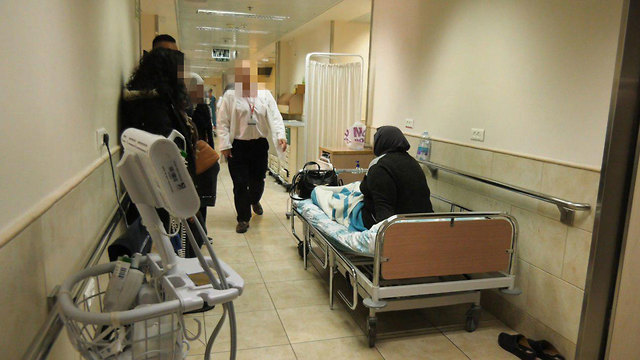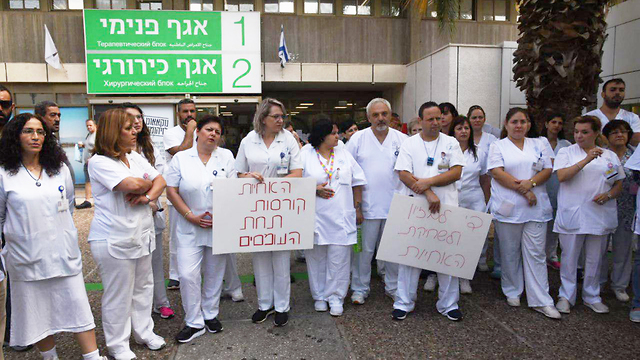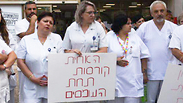
"Winter hasn't arrived yet, and already the ER looks like a jungle," says Smadar Lashem, an ER nurse at Ichilov Medical Center in Tel Aviv, one of Israel's largest hospitals.
Leshem's comments reflect the sense of despair prevalent among members of Israel's medical establishment, particularly nurses.
"I'm running like a rat between patients, but to no avail. They're suffering and yelling, just a sorry lot. There aren't enough nurses and as a result, our response is lacking at best," says Leshem.
Diana Klisher, the head ER nurse at Galilee Medical Center in Nahariya, where capacity last week was at 200%, says the medical staff is battling to treat everyone properly.
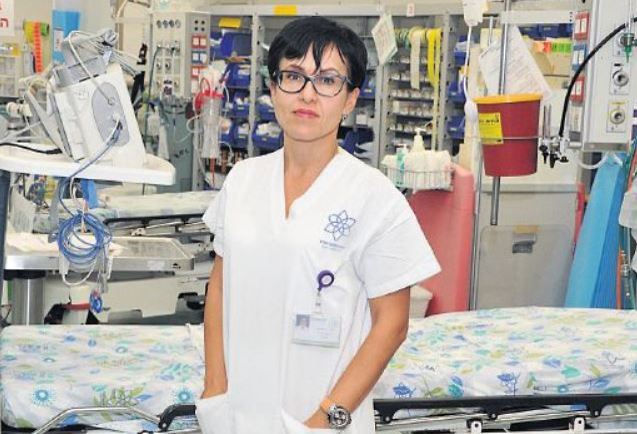
"We're ping-ponging between patients in a crowded wing. We don't sleep, eat or rest for a moment. After the nightshifts, we're dead beat," she says.
In Haifa's Rambam Hospital, the situation is no better says Ronen Croytoro, a oncology nurse.
"Patients are sleeping in the hallways. Capacity is illogical. Why does a cancer patient, who's in pain and vomiting, need to sleep in the hall? Does this look normal to anyone?!"
The hospitals are not the only ones facing this predicament.
Iris Avital, a 35-year veteran nurse at a public health center in the central city of Ramla, says they too are struggling to meet demand in the local community.
"We don't have any appointments for postpartum women," she says. "Sometimes they're asked to come for a checkup three months after giving birth. This could have terrible consequences. We also can't keep up with the pace of vaccinations for babies, because there are no open appointments."
Vaccines for children are not the only ones with long waiting times. Last week saw the start of the flu jab campaign in Israel, and nurses are already reporting endless queues.
One nurse said there was a queue of 67 people at her local health center.
Eight months ago, nurses were ordered to work extra shifts as part of a campaign to inoculate people against measles.
Their union reached an agreement with the government for overtime, with nurses being paid NIS 134 for every hour of work during the Jewish holidays. They are all still waiting for their full payment.
A report published by the OECD last week shows that in Israel there are five nurses for every 1000 citizens. This is far lower than the average for developed countries, which stands at nine nurses for every 1000 citizens.
"This is an unbelievable travesty," says Ilana Cohen, head of the Nurses' Union.
"The impossible overcrowding has finally reached the public consciousness," she says.
"There is no resemblance between how hospitals are told to operate by law and the facts on the ground. We are seconded for immunization campaigns with no replacements. It's time to settle the issue. We can't wait for a new government to form," she says.
Nurses have begun to take action against the Health Ministry. The government was told by the courts four months ago to begin negotiations with the nurses and begin reducing untenable workloads.
"There is an unbearable workload for nurses," Chief Justice of Tel Aviv Regional Labor Court Ariela Giltzer-Katz stated in her court ruling.
Despite the ruling, a meeting between the nurses and the budget officials at the Finance Ministry is only expected to take place in two weeks.
The Health Ministry said in response that it is recruiting new burses on a regular basis.
"Over the last year, 2,500 new nurses have joined the health service," the ministry said, adding that it would "continue to increase the number of students in the profession and maximize their independence, talents and authority."
Goel Beno contributed to this report















